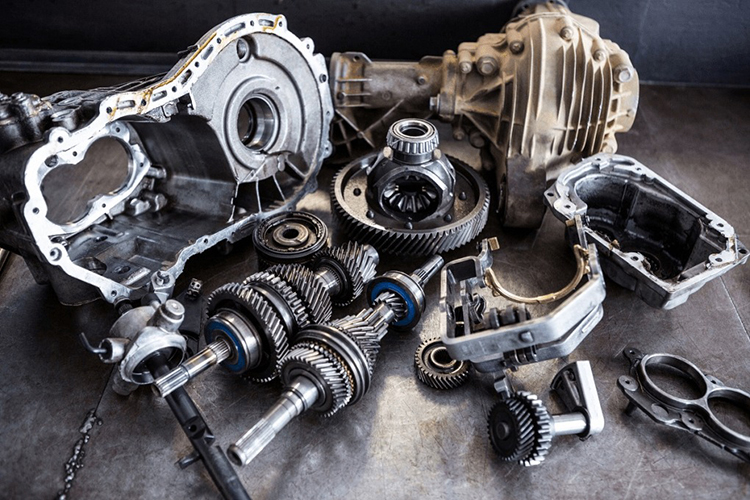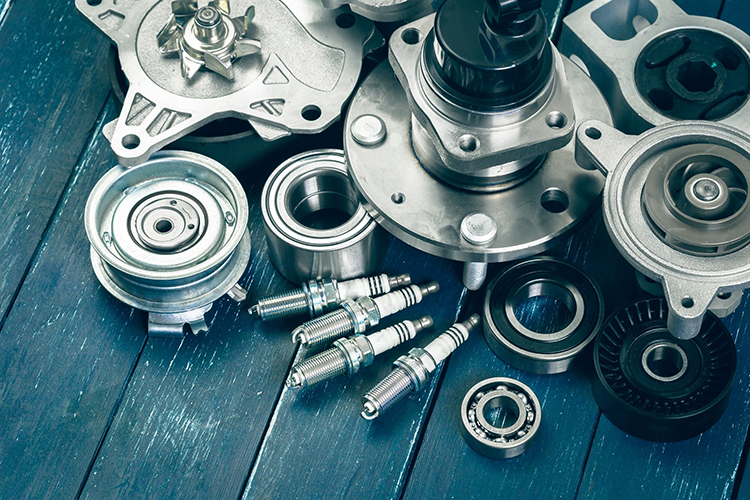When your car needs repairs or parts replacements, finding the right supplier for car parts is crucial. With the variety of car brands and parts available, choosing quality and compatible components is essential for both vehicle performance and longevity. In this article, we will explore several ways to obtain car parts and help you make an informed decision.

1. Authorized Dealers and Brand-Specific Stores
For parts replacement, the first option to consider is purchasing from authorized dealers or brand-specific stores. Most car brands work with authorized dealers to sell OEM (Original Equipment Manufacturer) parts. These parts are tested and certified to ensure compatibility with your vehicle, meeting high-quality standards. Purchasing through authorized channels often comes with the added benefit of better after-sales support and technical assistance.
For example, if you drive a Chevrolet, Buick, or Cadillac, you can visit the official channels or authorized dealers to buy the right parts. Authorized dealers not only provide genuine parts but also offer professional installation and after-sales services.
2. Online Platforms and E-commerce Websites
With the rise of e-commerce, many online platforms have become a major source for car parts. Large e-commerce websites like Alibaba, Amazon, or local platforms like Taobao and JD.com offer a wide range of car parts. Consumers can search for parts based on their vehicle model or part number, and even choose certified aftermarket parts.
However, there are a few things to keep in mind when buying online:
Seller Reputation: Check the seller’s ratings and reviews to avoid low-quality parts.
Compatibility: Ensure the part matches your vehicle model and year.
Expert Advice: If unsure, consult a mechanic or parts supplier before purchasing.
3. Auto Parts Wholesale Markets
For those who need to buy parts in bulk, an auto parts wholesale market can be a great option. These markets typically bring together a wide range of suppliers, where you can find parts for various car brands at competitive prices. Purchasing in bulk can lead to cost savings, especially for repair shops or businesses.
However, the quality of parts in wholesale markets can vary, so it's essential to choose reputable suppliers and request certification or guarantees of quality. For regular car owners, seeking professional advice is recommended to ensure the parts meet safety and quality standards.

4. Specialized Auto Parts Manufacturers
If you have specific requirements or want direct access to high-quality parts, purchasing from specialized auto parts manufacturers is another option. Some manufacturers not only provide OEM parts but also offer certified aftermarket parts that are of excellent quality, often at a more competitive price than direct dealership options.
For instance, companies like Zhengpei Auto Parts (Danyang) Co., Ltd. specialize in manufacturing and selling parts for multiple major car brands, including Chevrolet, Buick, and Cadillac. Working directly with manufacturers can provide cost-effective solutions while ensuring product quality.
5. Auto Repair Shops and Parts Suppliers
Many auto repair shops also offer parts for sale and replacement. If you're already visiting a repair shop for services, you can inquire whether they sell the parts you need. Repair shops typically recommend compatible parts based on your vehicle and offer professional installation services. However, this option may be more expensive than other channels due to the additional service costs.
When choosing an auto repair shop, ensure that the shop is reputable and experienced, as this will affect the quality of both the parts and services.
How to Assess the Quality of Car Parts?
No matter which channel you choose to buy from, assessing the quality of car parts is paramount. Here are a few tips to help you make the right decision:
Check for Certifications: Legitimate car parts often come with quality certification labels, such as ISO or CCC certification.
Choose Reputable Brands: Well-known brands typically offer better quality assurance and after-sales support.
Ensure Compatibility: Make sure the part is fully compatible with your car’s brand, model, and year. Incompatible parts could affect your vehicle’s performance or pose safety risks.
Consult Experts: If you're unsure about a part, consult a mechanic or professional parts supplier for advice.
Conclusion
Choosing the right channel for purchasing car parts is crucial. Whether through authorized dealers, online platforms, wholesale markets, or directly from manufacturers, it's essential to ensure the parts' quality and compatibility. Regularly checking and replacing parts not only keeps your car running smoothly but also ensures your safety on the road.
We hope the tips in this article will help you find quality car parts with ease, ensuring that your vehicle remains in top condition. If you have any questions, feel free to consult a parts supplier or auto repair expert for professional advice, so you can make an informed and safe choice.
